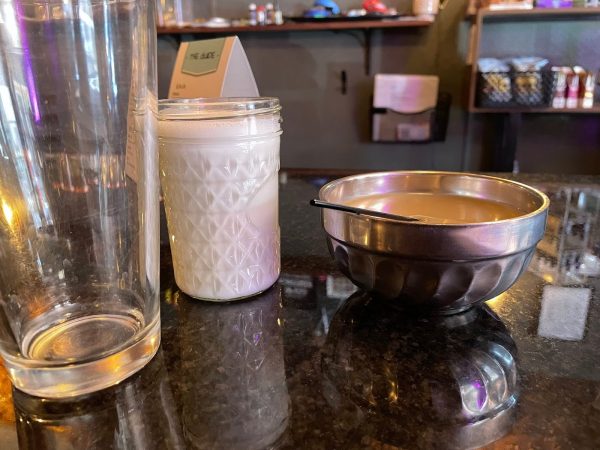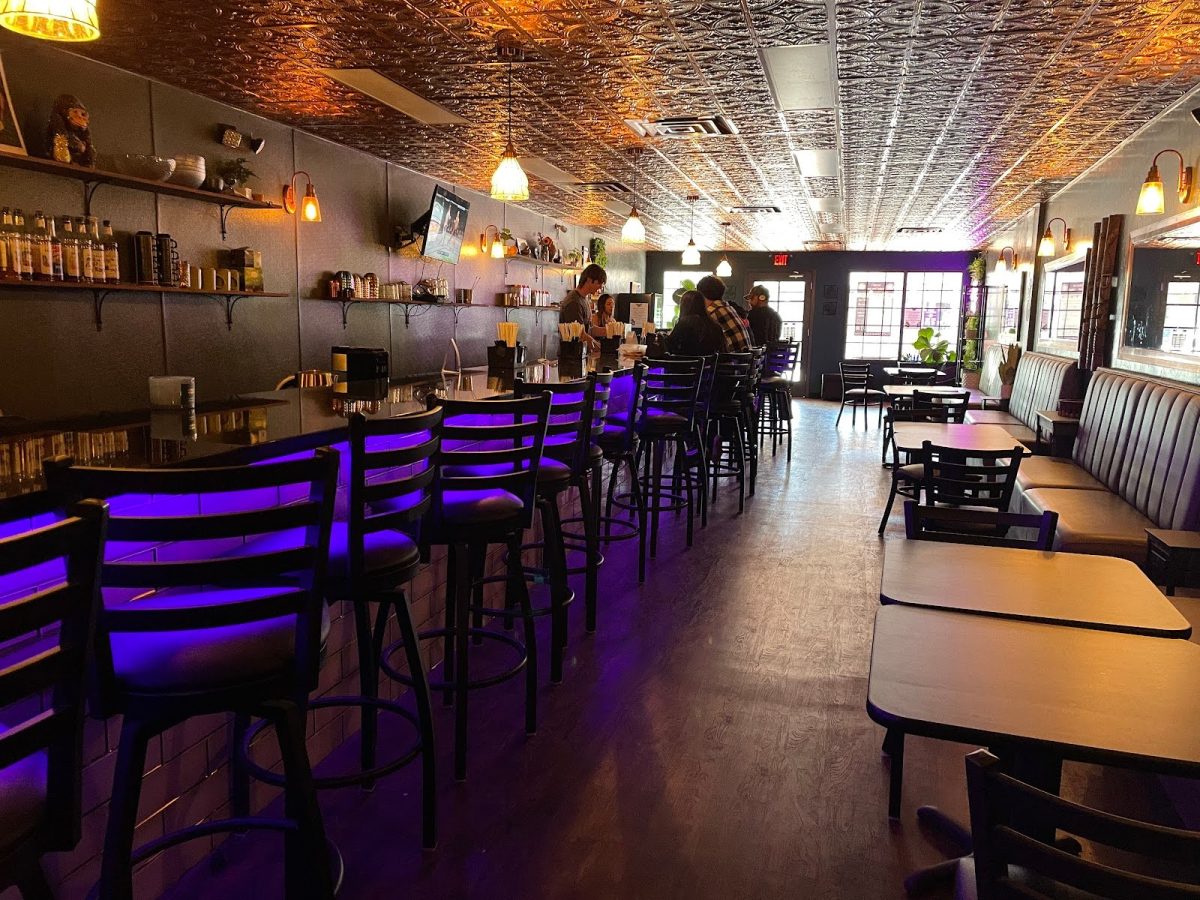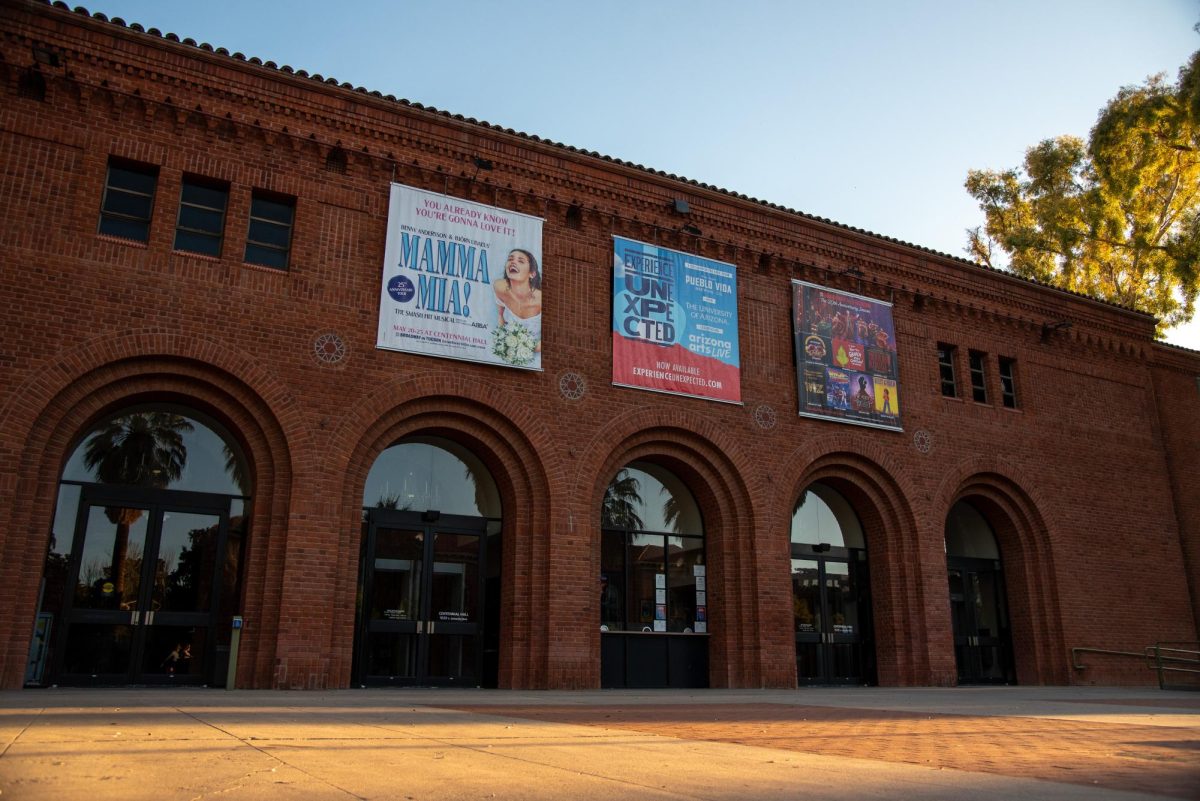You could easily mistake this place for a nightlife bar. An unassuming exterior gives way to a black bar with purple underlighting and large vinyl-leather chairs and spaces for lounging line the building lengthwise.
If you walk in on a Saturday afternoon, you might see Ben Caspary working the bar. A University of Arizona student who likes the relaxed vibe of his job, he says he casually chats up the customers while polishing glasses and mixing drinks. Everything about this place reads like a night life bar, however, the menu is more akin to a teahouse.
Owners Whitney and Kevin Marx say they strive to make their business casual and inviting.
“We are about to celebrate our 5 year anniversary [business opening],” Whitney Marx said.
“First year was the hardest because we opened in November of 2019. By March of 2020, the country was effectively shut down,” Kevin Marx said.
He and Whitney struggled to maintain the business, especially since Kevin said they were denied compensations that other small businesses received because of the circumstances of their opening.
“It took us a while to build up regular business,” Whitney Marx said. “We have some pretty good foot traffic here. Sometimes it’s a struggle.”
However, the Kava Den is a different kind of establishment, says Tucson local Julian Madero.
“An average bar you go to is rowdy and loud. Here, it is calm and relaxed,” Madero said.
The vibe fits perfectly with the product. The taste of kava is not necessarily appealing, but its effects are very unique. It compares to alcohol, but with a few distinctions. It does not burn down your throat as you drink it. It is not carbonated like beer and it does not cause you to become disoriented or hungover afterwards, Whitney Marx says. A strange, tingling sensation follows after it goes down.
Tea is exactly what you order. Kava root and kratom are medicinal herbs, according to Dr. Stephen Dahmer, director of the Andrew Weil Center for Integrative Medicine at the UA. It was used for hundreds of years as traditional medicine and its intoxicating properties have propelled its consumption to the global market.
Dahmer says the root has its origins in the Pacific Islands of Northern Vanuatu. The first peoples to use it were the Austronesians.
“From my understanding, it was James Cook who first identified it from a western perspective,” Dahmer said. “I’m not sure of the exact mechanism of how it became popular in the U.S […]. Kava is a very potent anxiolytic.”
Anxiolytic is a “class of medications used to prevent or treat anxiety symptoms or disorders,” according to WebMD. Dr. Dahmer said the uses of kava can be compared to alcohol. He used the term social lubricant, which accurately describes the social aspect of kava.

In observed instances of traditional consumption, kava is almost always consumed with others. According to Dahmer, it is rare to find someone drinking kava alone. It highlights the communal connection between kava consumption and societal interactions.
Despite not keeping to more traditional kava consumption practices, the essence of the Kava Den still captures that feeling of social interaction. The staff is friendly and the customers are friendlier. When you’re there, it’s easy to lose track of time.
“We wanted to go with a downtown vibe down here,” Whitney Marx said. “Something a little more classy and sophisticated.”
“We’re from Asheville, North Carolina. There were a couple of kava bars there,” Kevin Marx said.
Kevin Marx says there was no kava bar competition on the market here in Arizona, making it a good way to stand out from the ever-diverse food and beverage industry of Tucson. With alcohol currently still dominating the social lubricant market, a new root is beginning to grow.





















